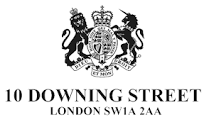PRESS RELEASE : Cameron will get his demands because they are trivial
The press release issued by Vote Leave on 8 November 2015.
Commenting ahead of the PM’s speech this week and the letter on EU renegotiation, Vote Leave Campaign Director Dominic Cummings said: “We expect Cameron to get what he’s asking for but what he’s asking for is trivial.
‘The public wants the end of the supremacy of EU law and to take back control of our economy, our borders, and our democracy. The only way to do this is to vote leave. No. 10 is panicking because people can see the renegotiation is a dishonest gimmick.”
The fact that David Cameron is sending this letter is itself a concession. He was forced into doing so after EU leaders complained that the renegotiation could not happen without the Prime Minister setting out his demands in a letter. Senior figures across Europe have been frustrated by the slow pace of his negotiations – with exasperation coming to a head at the European Council meeting in October:
Martin Schulz, the President of the European Parliament, complained: ‘The UK government raised the problem of the referendum … It is up to the Cameron government to make proposals. It is not up to us’ (quoted in The Guardian, 15 October 2015, link).
Jean-Claude Juncker, the President of the European Commission, said no real progress had been made by mid-October: ‘I can’t say that huge progress has been achieved. I can’t say that nothing has been achieved. But to tango it takes two,’ said on 14 October: ‘And so we have to dance and our British friends have to dance’ (quoted by Reuters, 16 October 2015, link).
Angela Merkel told the Bundestag the following day that it was up to the UK to ‘clarify the substance of what it is envisaging’ (quoted in The Independent, 16 October 2015, link).
Charles Michel, Prime Minister of Belgium, said: ‘It is time for Mr Cameron to put his cards on the table’ (Press Association, 16 October 2015, link).
‘Senior EU officials and diplomats said that a substantive political negotiation at December’s summit will only be possible if Britain delivers clear, written proposals to Brussels and the 27 other national governments by early November’ (Reuters, 16 October 2015, link).
The Government’s negotiations are already running behind schedule. As Charles Grant, Director of the Centre for European Reform, said in June: ‘Cameron hopes to clinch a final deal in December’ (26 June 2015, link). Philip Hammond told reporters as recently as 22 September: ‘When I’ve had a few glasses of champagne I think there might be agreement at the December European Council, a package and we can move forward’ (The Daily Telegraph, 22 September 2015, link). But following the exasperation of EU leaders in October, and David Cameron’s forced announcement that ‘the pace will now quicken’, it is clear that the December Council will only be a ‘substantive discussion’.
The Government didn’t want you to see this letter. At the Downing Street press briefing where it was first announced that the Prime Minister would be sending this letter to President Tusk, it was made clear that the letter would remain confidential, not made available to Parliament and the public. It was only after Sir William Cash – Chairman of the European Scrutiny Committee – objected, that Number 10 confirmed that the letter would be made public (Bill Cash’s blog, 19 October 2015, link).
Any deal will be meaningless without treaty change before the referendum… Any new deal which is dependent on a treaty change is liable to be struck down by the EU’s courts after the referendum. The European Court of Justice has previously held that a political declaration of the European Council which limits rights under EU law ‘has no legal significance’ unless and until it is incorporated into EU law (R v Immigration Appeal Tribunal, Ex parte Antonissen [1991] 2 CMLR 373, 400). Any treaty changes that the UK might be promised ahead of a referendum could be vetoed after the vote by any one of the 27 other EU member states, several of which may have to hold referendums under their own constitutions. A treaty that has not been ratified before the referendum will have the same legal status as an unsigned contract.
… as the Cabinet Secretary warned this week. Sir Jeremy Heywood has reportedly told Ministers that their proposal to ban EU migrants from claiming tax credits in the UK for four years will be deemed illegal under EU law (BBC News, 4 November 2015, link).
But the Government cannot promise that it will achieve that before the referendum. Following his speech in Berlin earlier this week, George Osborne admitted that some of the Government’s demands would need treaty change but was unable to say when this will happen. Although he admitted that ‘the changes we are seeking will require treaty change,’ all he could say on timing was: ‘how that is delivered and when that is delivered is of course subject to the negotiation’ (BBC News online, 3 November 2015, link).
The Prime Minister has already shelved nine out of ten of his demands. Vote Leave research has shown that 92% of David Cameron’s pledges to change the EU look like they will not be delivered by his EU renegotiation – either because they have been dropped, or because they require treaty change. (See the full Vote Leave research paper here). This includes black-and-white promises on crucial parts of the UK’s relationship with the EU, such as the Prime Minister’s promise in 2009 to negotiate ‘a complete opt-out’ from the EU’s Charter of Fundamental Rights (David Cameron, speech on the EU, 4 November 2009, link).



